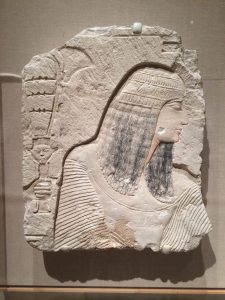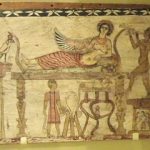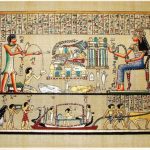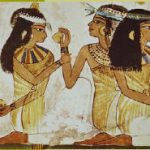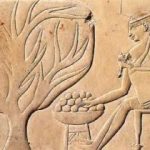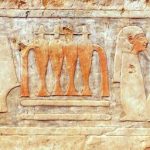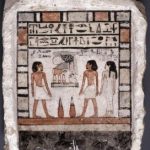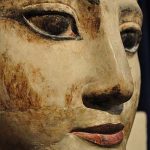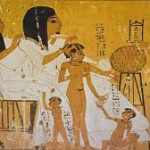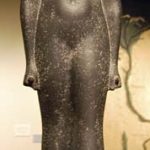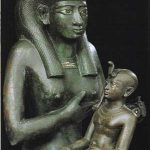Women in ancient Egypt had greater rights than in any other civilization of the time. They could own land, initiate divorce, own and operate their own business, become scribes, priests, seers, dentists, and doctors. Although men were dominant and held the most important positions in society as a general rule, there is ample evidence of positions in which women had authority over men. Women’s authority is evident in the early medical schools, women ruling the country without a male consort, female seers and physicians, early beer brewers and textile work managers, ‘sealers’ who safeguarded important records and objects, and most notably through the position of God’s Wife of Amun.

Although women took care of the house, the extended family, and the children, they were also free – if they had the means – to leave these responsibilities to a servant or other female family member and seek work outside the home. Just as in the present day, a mother would raise her daughter according to her own values and lifestyle, and so a woman who prioritized housework and family would most likely produce a daughter who did the same; there was, however, no cultural stipulation against women working and holding a number of important positions.
Many women, in fact, who had been raised to be housewives turned those skills into high-paying jobs in the homes of nobility and the upper class. Others, who found housework fulfilling and whose husbands and sons provided amply, were content to care for the home and family. There is no difference between this social structure and that of many societies today with the exception that, in ancient Egypt, it was understood that the man was the head of the household and had the final word in decisions. Even so, there is plenty of evidence to suggest that men consulted with their wives regularly and that the marriage was seen as an equal partnership.
Women at Home
Even though men held the place of authority, women kept the home functioning; whether they did so personally or supervised the work of servants. Even if a woman had a job outside the home, she was still responsible for maintaining it. Men are mentioned helping out with housework, but it was not their primary responsibility.
A wife and mother had many daily tasks beginning with the sunrise. She would need to wake her husband and children for work of school, maintain the family altar, prepare breakfast, clean up afterwards, tidy the house, make sure the home was free of pests and rodents, bring water from the well, ensure the stores of grain and other supplies were safe from contamination or pests, take care of the children if they were young, see to the needs of the other members of the extended family if they were elderly, feed the pets and make sure they were healthy, tend her personal garden, prepare the light afternoon meal, bake bread, brew beer, prepare the evening meal, take care of the weaving and sewing of clothing, sheets, blankets, and jackets, do the laundry, greet her husband and sons when they returned from work or school, serve dinner, clean up afterwards, feed the pets, put the young children to sleep, and prepare for bed.

Some women also chose to work from home, and so, in addition to their daily chores, they also had to make time for their job. Work-from-home usually had to do with baking, brewing beer, sandal-making, basket-weaving, jewelry work, seal-making, textile weaving, and making charms and amulets.
There were usually many other women in the house one could call on to help with these chores since Egyptians lived with extended families. There was no marriage ceremony in ancient Egypt; a woman simply moved with her belongings to the house of her husband or her husband’s family. A married couple could find themselves living with the husband’s widowed mother, aunt, uncle, and cousins when they were first setting up a home. This situation meant little privacy but a number of people on hand to help with chores.

